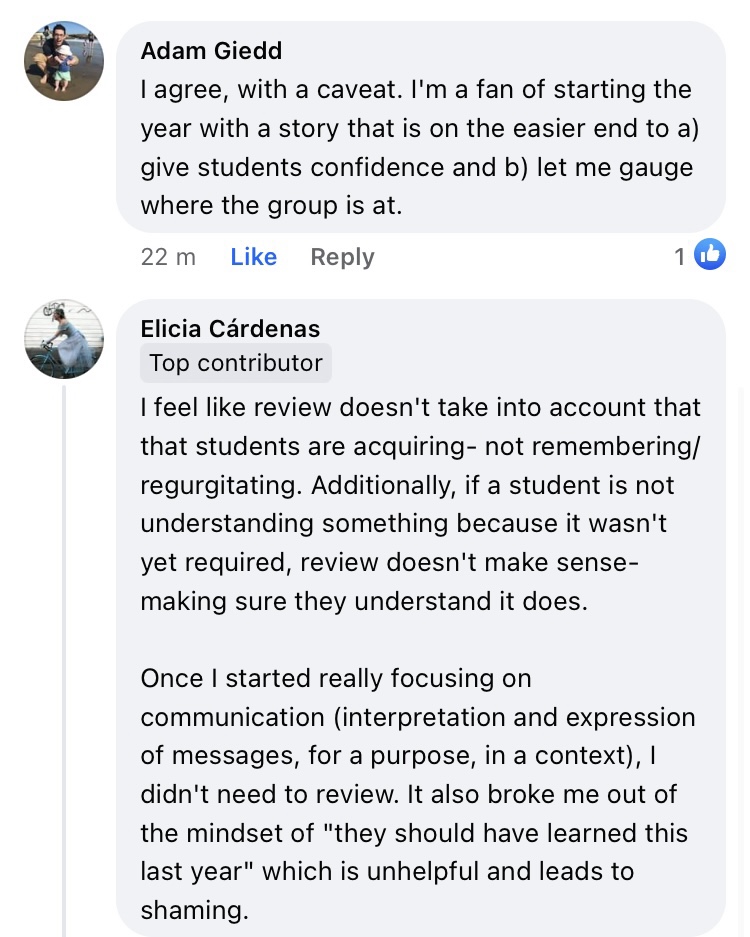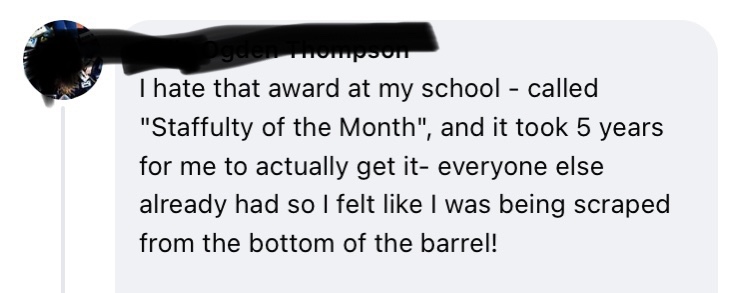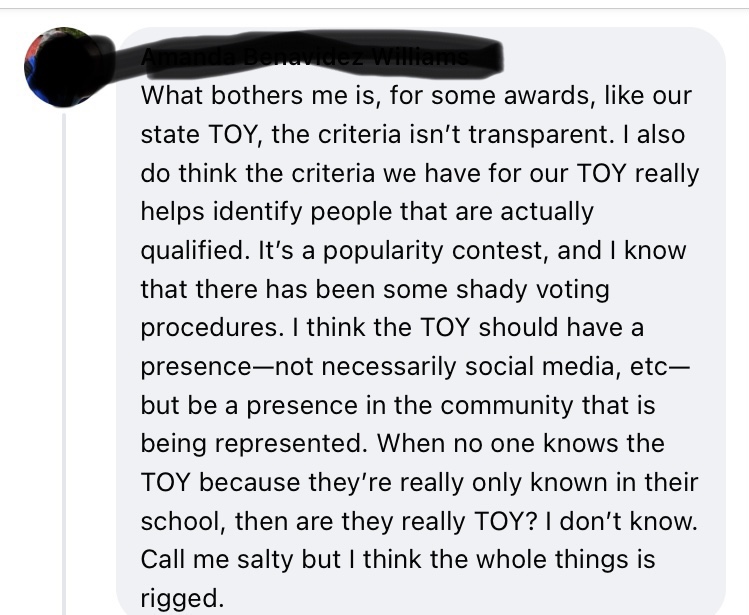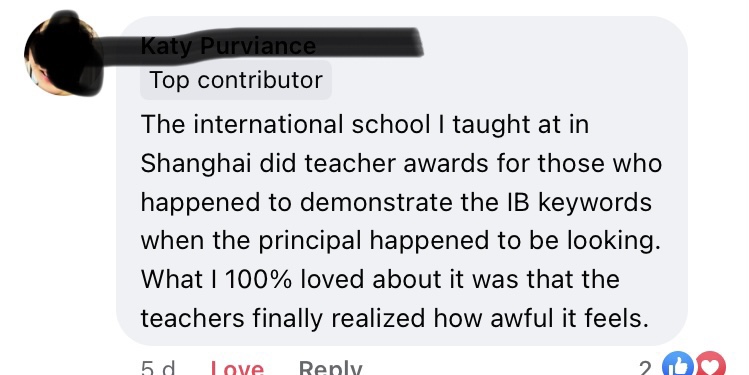September and January mean new classes, and most of us teach Level 2 and up as well as beginners, and so I was asked, what kind of review should I be doing with my 2s?
Today’s question: Should I do a “review unit”?
Answer: We can…but we don’t need to.
We don’t need to do “review units” because…
First, good C.I. teaching always recycles vocabulary and checks for understanding. When you start your first story, or Person of the Day or whatever you do on Day 1 of Level 2, you are going to ask eg “are you a girl?” and if the answer is wrong, epically slow or non-existent, well, you stop and stay on that sentence until your student gets it right. When the student gets it right, your class will have had lots of good input, so they will “have it,” at least in their heads.
And when you ask a story, or describe a picture or whatever, you check for comprehension by asking “Johnny, what does el chico no quiso comer la arana enorme mean?” and again, if you don’t get “Johnny didn’t want to eat the giant spider,” you stay on that sentence by clarifying and then asking questions about it. If you are finding, wow, they don’t understand much at all, you simplify your story or whatever.
Second, “review units” are BORING. I don’t know what a “review unit” would look like in a C.I. class– I have never done or needed one– but in my textbook days the kids would say “we knoooow this” or “this is boooring.”
Third, the best way to “review” anything is to use it in the context of something new. Which is exactly what stories, or Person of the Day, or Movietalk, or Picturetalk, are.
Here are a few comments from the on-point crew at C.I. Fight Club:

Adam’s got a solid point: as Blaine Ray puts it, we have to “figure out what they don’t know, and start there,” and his way of doing that is with a story with very familiar vocab.
And Elicia makes another good point: taught =/= got. Anybody who inherits kids from a legacy-methods teacher knows this. Hell, even kids who get As in legacy classes don’t remember much, because their experience is about learning (conscious mind and memory) rather than acquisition. And the kid with academic or personal-life challenges who remembers very little is not going to be happy doing a “unit” that focuses on remembering things from the past. That kid will acquire much more if they are in the comfort of a C.I. class where all they have to do is pay attention.
So…is there any way to review vocab? Sure, as Meg Volz reminds us:

The Super 7 and Sweet 16 verbs are the basis for communication in any language. A good C.I. class should spend Year One on the Super 7, and Year 2 using these and adding the next nine. You can read Mike Peto’s superb curriculum design plan– built around the Super 7 and the Sweet 16– here.




